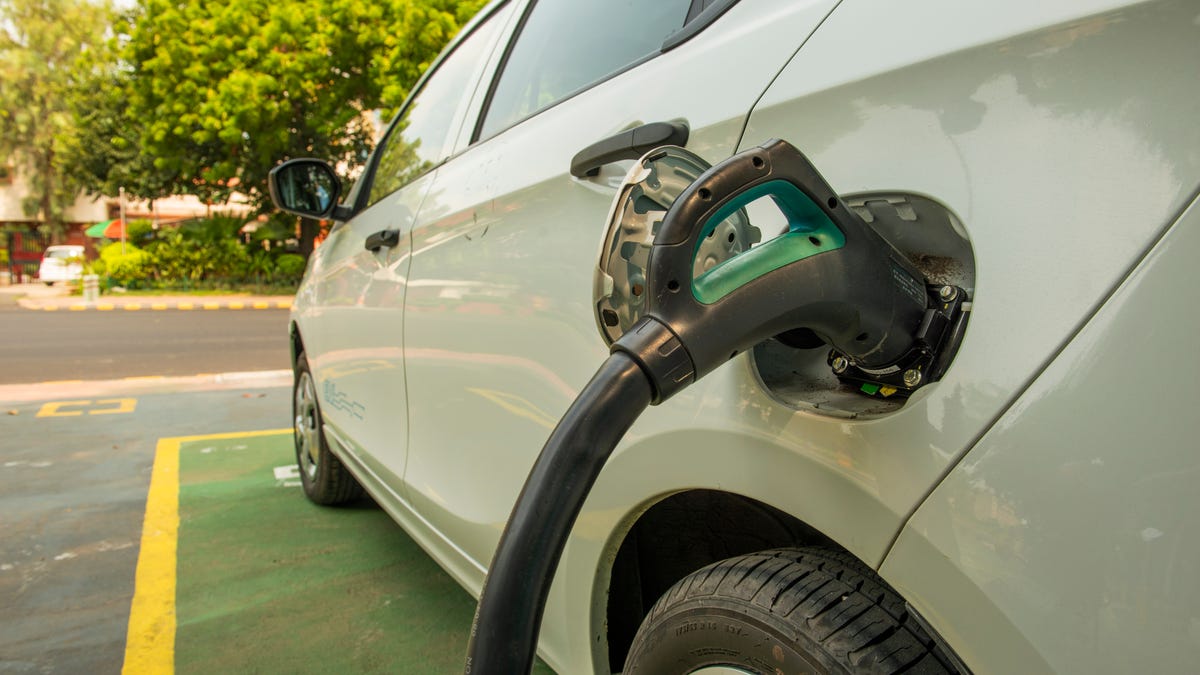Everything is more expensive these days, and one of the most dramatic examples inflation is in the used car market, which has seen prices soar as much as 40% in just a few years. Where you could once reliably find an affordable beater that would get you to and from work for a while, that’s no longer the case.
Even still, if you can’t afford a new car, you’re going to look for a used one. And you might think you can get ahead of the curve (and maybe save some money) if you buy a used electric vehicle (EV). EVs cost less to fuel up and less in maintenance, on average, and you can potentially qualify for a federal tax credit of up to $4,000. Plus, EVs depreciate faster than combustion cars, so your chances of finding a bargain are slightly better.
Those are all good reasons to consider a used EV. But these are early days in the used EV market, so a little caution is warranted. There will come a time when buying a used EV is the smart move, but that time isn’t here quite yet. Here’s why you should consider sticking with old-fashioned used gasoline of hybrid vehicles right now, and leave the EV adventuring to Future You.
Navigating the used EV market is tricky
The first thing to consider is that the used EV market is very strange. Only about 1% of all the cars on the road today are electric vehicles, which means many of the EVs on the road today are still with their original owners, and many of the models you can buy used are going to skew older. Early models like the Nissan Leaf can be found for relatively low prices, but EV technology has evolved rapidly, and these older models lack a lot of basic features like cooling systems that extend the useful lifespan of their batteries. That means you can buy a super-cheap EV that’s only about a decade old and find it to be more or less unusable in any practical sense, especially when compared to a gas-powered car of similar vintage.
At the other end of the weirdness spectrum are more recent models of EVs that are actually more expensive than brand new. Due to a mix of supply-chain issues and a drop in production of new models, people are actually flipping their EVs for profit. About 17.5% of the used EV market is composed of cars that are just three years old, and cost almost as much as a new car, or more. You can still find a relative bargain in the used EV market, but you’re going to have to navigate your way through a flood of cheap-but-broken cars and overpriced flips to find them. That’s a pretty volatile market, and avoiding that kind of chaos for the relative stability of a gas-powered vehicle is a good idea.
Older EVs may face battery issues
The other reason you might want to wait on buying a used EV is that they come with the same limitations as new EVs, except worse:
- Lack of charging stations. Depending on where you live, finding a place to charge your EV can still be a challenge. Between a lack of infrastructure and the fragility of many chargers, keeping your car juiced isn’t always easy. And this is especially problematic for used EVs because of their…
- Lower battery capacity. EV batteries lose up to 10% of their capacity in the first five years, and about 2.3% on average annually. That’s expected, and the battery will still power the car acceptably well even if it degrades significantly—EV batteries are generally warrantied for 8 years or 100,000 miles. But if the battery in your used EV only gets you a relatively small amount of range (keeping in mind that dashboard range predictions are notoriously inaccurate), a lack of charging stations will exacerbate the problem—and replacing an EV battery can cost more than $10,000. None of this is a concern with a gas-powered vehicle.
Electric vehicles are incredible technological achievements, and someday very soon buying one new or used will be a no-brainer. Right now, though, if you’re looking for a used car you’ll avoid a long list of concerns by buying one with an internal combustion engine.

